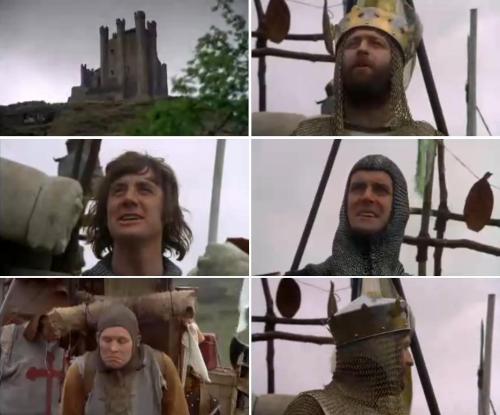Posted on 06/24/2010 6:20:05 PM PDT by SunkenCiv
A Roman fort which has been discovered in Cornwall is challenging previous historical views about the South West.
Pottery and pieces of slag have been found at the undisclosed location near St Austell, suggesting an ironworks.
Experts said the discovery challenges previous thinking about the region's history as it had been thought Romans did not settle much beyond Exeter.
John Smith, from Cornwall Historic Environment Service, said: ... "For Roman Britain it's an important and quite crucial discovery because it tells us a lot about Roman occupation in the South West that was hitherto completely unexpected. The other Roman sites we know about [in Cornwall] have occupation in the 1st Century AD, of about AD50 to AD80, and that fits in with what we know about Exeter. In finding the pottery and glass, it's saying the occupation is much longer and goes from AD60 up to about AD250, which turns the whole thing on its head..."
The site had previously been regarded as an Iron Age settlement, but the recent discovery of pottery and glass was found to be of Roman origin.
Archaeological enthusiast Jonathan Clemes discovered various artefacts by studying the earth after it had been ploughed...
Following the discovery of the artefacts a geophysical survey of the site was conducted, which uncovered a fort, marching camp and various annexes.
Mr Smith said that prior to this discovery, it was believed that Roman forts had only been positioned close to the Devon border, because after settling for about 30 years, the Romans left the region for south Wales.
It will now be considered whether to excavate the area, or to leave it for a future excavation when techniques have advanced.
(Excerpt) Read more at news.bbc.co.uk ...
Hmm ~ no doubt Camelot.
|
|
|||
Gods |
It may a seem a little snarky to point out that, around 30 years ago there was a dry spell at Tintagel -- one of the sites associated with the King Arthur legend -- and a grass fire got started, burned off a bunch of low growth, and exposed the remains of over 200 previously unknown buildings from the "dark ages" right after the Roman evacuation. Prior to this accident, the gov't archaeologists had just gone along with the "fact" that Tintagel was a post-Norman medieval site and hadn't existed during the purported time of King Artie. Those damned 200 buildings were hidin' in the grass. |
||
|
· Discover · Nat Geographic · Texas AM Anthro News · Yahoo Anthro & Archaeo · Google · · Archaeology · The Archaeology Channel · Excerpt, or Link only? · cgk's list of ping lists · |
|||

Camelot! Camelot! .....
It's only a model!
Shhhhh!
mark
;’) The name for Camelot probably came from the Roman name for Colchester, Camulodunum, which would also be a candidate for a post-Roman capital of some sort were it not for the Angles, Saxons, and Jutes’ having come in that way. Some writers attribute the name to a site near this or that road crossing this or that River Camel (there are a few different rivers and streams by that name in the UK). “Dark Ages” Viroconium is one of the better candidates for the “real” Camelot, but the story is probably a composite, and probably has pre-Roman roots.
Cool! My great, great grandparents were from Cornwall and come over to work the copper mines in Houghton, MI. Still have kin up there with the same last name.
As a consequence of that "X" many of those places are wrongly considered early Saxon sites rather than existing Celtic sites taken over by Saxons invited in by some local Romano-Celtic king.
In Camelot we have, right at the start, the Celtic "ker" abbreviated by "r" dropping. That's followed by "me", pronounced more like "maygh", then an "l" for "Elle", and a "t" which could be reflexive for all anyone can figure out about that sound.
This would be point/county/kingdom of Mc Elle, or something pretty close to that, and there are still large numbers of old Irish, Welsh, Scottish, Cornish and Breton names that have that sequence.
Kind of like to know where this particular Roman Fort is located.
NOTE: Cornish people have pretty much had a monopoly on deep rock tunneling here and in Europe for a very long time.
I learned that watching ‘Poldark’, with Robin Ellis on BBC years ago.
Great - have you ever gone up to visit Houghton in the summertime? It's beautiful up there, and as a Michigan Tech grad, I greatly miss it!
Lots of Cornish miners, lots of Finns as well, in the UP.
Disclaimer: Opinions posted on Free Republic are those of the individual posters and do not necessarily represent the opinion of Free Republic or its management. All materials posted herein are protected by copyright law and the exemption for fair use of copyrighted works.